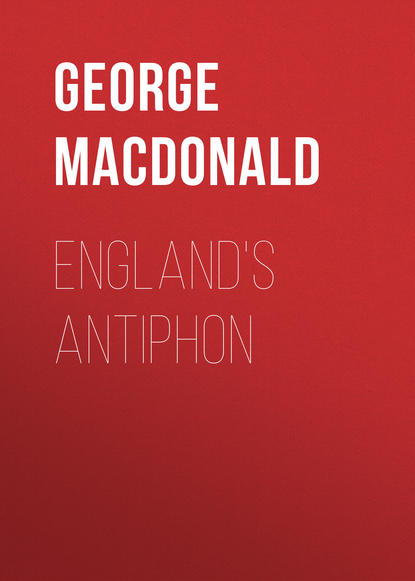По всем вопросам обращайтесь на: info@litportal.ru
(©) 2003-2025.
✖
England's Antiphon
Настройки чтения
Размер шрифта
Высота строк
Поля
114
By hinges he means the axis of the earth, on which it turns as on a hinge. The origin of hinge is hang. It is what anything hangs on.
115
This is an apostrophe to the nine spheres (see former note), which were believed by the ancients to send forth in their revolutions a grand harmony, too loud for mortals to hear. But no music of the lower region can make up full harmony without the bass of heaven's organ. The music of the spheres was to Milton the embodiment of the theory of the universe. He uses the symbol often.
116
Consort is the right word scientifically. It means the fitting together of sounds according to their nature. Concert, however, is not wrong. It is even more poetic than consort, for it means a striving together, which is the idea of all peace: the strife is together, and not of one against the other. All harmony is an ordered, a divine strife. In the contest of music, every tone restrains its foot and bows its head to the rest in holy dance.
117
Symphony is here used for chorus, and quite correctly; for symphony is a voicing together. To this symphony of the angels the spheres and the heavenly organ are the accompaniment.
118
Die of the music.
119
Not merely swings, but lashes about.
120
Full of folds or coils.
121
The legend concerning this cessation of the oracles associates it with the Crucifixion. Milton in The Nativity represents it as the consequence of the very presence of the infant Saviour. War and lying are banished together.
122
The genius is the local god, the god of the place as a place.
123
The Lars were the protecting spirits of the ancestors of the family; the Lemures were evil spirits, spectres, or bad ghosts. But the notions were somewhat indefinite.
124
Flamen was the word used for priest when the Romans spoke of the priest of any particular divinity. Hence the peculiar power in the last line of the stanza.
125
Jupiter Ammon, worshipped in Libya, in the north of Africa, under the form of a goat. "He draws in his horn."
126
The Syrian Adonis.
127
Frightful, horrible, as, a grisly bear.
128
Isis, Orus, Anubis, and Osiris, all Egyptian divinities—the last worshipped in the form of a bull.
129
No rain falls in Egypt.
130
Last-born: the star in the east.
131
Bright-armoured.
132
Ready for what service may arise.
133
The with we should now omit, for when we use it we mean the opposite of what is meant here.
134
It is the light of the soul going out from the eyes, as certainly as the light of the world coming in at the eyes that makes things seen.
135
The action by which a body attacked collects force by opposition.
136
Cut roughly through.
137
Intransitively used. They touch each other.
138
Self-desire, which is death's pit, &c.











